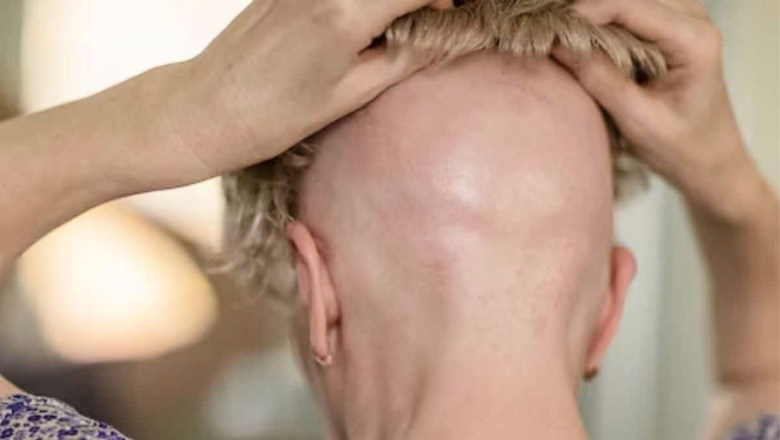
views
Hair fall is a prevalent issue affecting individuals across the globe, impacting both their physical appearance and mental well-being. In today’s society, hair is often considered a crucial aspect of one’s overall physique and personality, with its loss capable of significantly diminishing self-esteem. Various factors contribute to hair loss, including lifestyle changes, inadequate hair care, genetic predisposition, infections and poor dietary habits. In some cases, hair loss can be attributed to underlying medical conditions. One such instance was reported in the UK involving a woman named Nicole Thomas, residing in Cardiff.
Nicole’s battle with extreme hair loss commenced at the tender age of 13 when a hairdresser noticed a patch of missing hair at the back of her neck. Despite trying numerous oils and creams, her condition persisted until she sought professional help from a dermatologist. The diagnosis revealed that Nicole was suffering from Alopecia Areata Disease, an autoimmune condition wherein the body’s immune system mistakenly attacks hair follicles, resulting in hair loss. Typically, this condition manifests in small, round patches of hair loss on the scalp, often spreading to facial hair. Without proper intervention, complete hair loss is a possibility.
By the age of 17, Nicole had lost a substantial 70 per cent of her hair, compelling her to rely on wigs for three years. However, ongoing treatment has significantly improved her condition, offering her a renewed sense of hope. Medical experts emphasise that while there is no definitive cure for alopecia, numerous treatment options are available to manage the condition effectively. Alopecia often peaks between the ages of 20 and 30, leading to extensive hair loss, but advancements in medical research offer promising avenues for patients.
Nicole’s journey underscores the challenges individuals face when confronted with hair loss due to medical conditions. Beyond its physical implications, the psychological toll of alopecia underscores the need for comprehensive support and treatment options. As awareness grows and medical research advances, individuals like Nicole can find solace in the pursuit of effective treatments to manage their condition and regain confidence in their appearance.




















Comments
0 comment